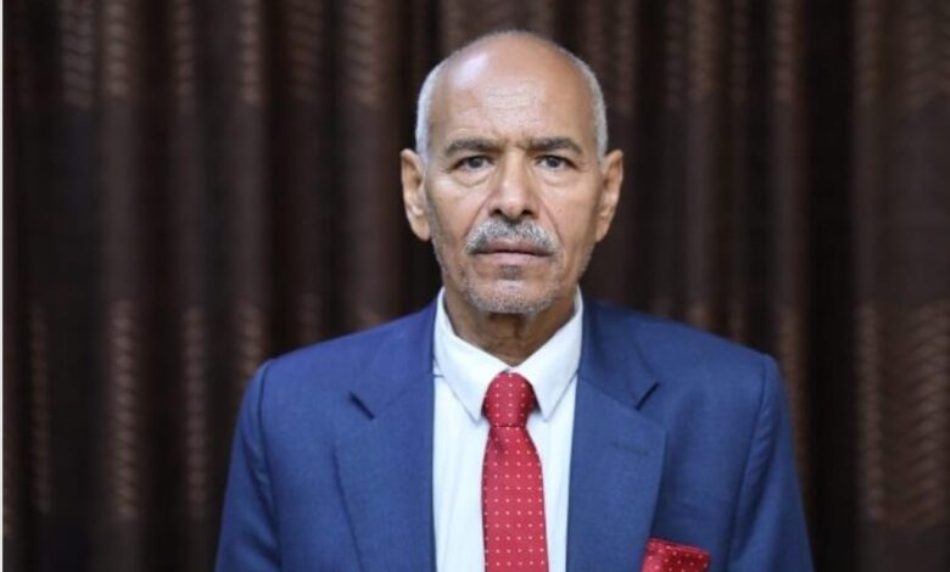By: H.E. Hussein Awad
Minister of Foreign Affairs of the Republic of Sudan.

The world is undoubtedly observing the tragic developments in Sudan, triggered by the RSF militia’s proxy war against the Sudanese people and State since April 2023. This war seeks to reshape Sudan, its State, demography, and potentially its map to further the agenda of an avaricious regional power, with the tacit approval or indifference of certain global actors.
The international community is fully aware of the severe atrocities and violations of international humanitarian law perpetrated by the Militia against our people. I affirm that our armed forces (SAF) is fully capable of defeating the Militia. SAF is fighting this imposed war with unwavering determination to restore peace and stability, enabling our people to rebuild their lives and repair the national unity and social fabric that the war has gravely threatened.
Why does the war persist?
This war would not have lasted this long without the logistical, political, and media support the Militia receives from certain regional countries. We in Sudan, therefore, call upon all peace-loving nations, as well as international and regional organizations, to unequivocally condemn external interference in Sudan’s internal affairs and demand these countries cease supporting the rebel militia with money, weapons, and mercenaries. We believe this is the shortest path to ending the war.
We also appeal to all nations, particularly our sisterly and friendly countries, to condemn the crimes and atrocities committed by the Militia, along with its serious violations of international humanitarian law. The Militia’s breach of the Jeddah Declaration on the protection of civilians and the delivery of relief warrants a decisive and deterrent international response.
The quest for peace
Conversely, Sudan welcomes all serious initiatives aimed at restoring peace and stability. However, Sudan remains steadfast in its commitment to the Jeddah platform as the forum for negotiating a ceasefire. We insist on implementing the resolutions of the Jeddah platform, which include protecting civilians and allowing them to return to their homes as a prerequisite for reaching a final agreement on a ceasefire.
The Jeddah Declaration remains the only binding and practical framework for addressing humanitarian issues and protecting civilians. It provides the most feasible basis for a ceasefire and lasting peace. Had it been implemented in good faith since its signing, just four weeks after the war began, it could have led to an early peaceful settlement. Any attempt to undermine or overlook it will, therefore, derail the peaceful resolution of the crisis.
Unfortunately, the lenient or empathetic attitude of several influential members of the international community toward the Militia’s disregard for the Declaration and relevant UN Security Council resolutions, particularly Resolution 2736 (2024), only serves to advance the Militia’s strategy of buying time and evading serious peace commitments.
No imminent famine
Regarding the humanitarian situation, Sudan is committed to protecting and delivering aid to those in need. However, I have to clarify that Sudan is not facing an imminent famine, despite the Militia’s concerted and deliberate campaign to starve populations in certain regions of the country.
The Militia’s strategy involves preventing farming in key food-producing regions by stealing agricultural machinery, inputs, and harvests, blocking irrigation canals, terrorizing farmers, obstructing relief deliveries, and looting major food warehouses. Nevertheless, according to the latest joint survey conducted by the Ministry of Agriculture and UN specialized agencies, there is only a minor deficit in staple grains in the country, a matter that occasionally happens due to different reasons, such as rain shortage.
As a contingency plan, we will cultivate sufficient quantities of sorghum, the main staple grain, in safe states, even those where it is not traditionally grown. For wheat, which is primarily consumed in urban centers, the country will continue to rely on imports.
Portraying the humanitarian challenge as dependent on a particular border corridor is misleading. Currently, five border corridors are open for aid passage, in addition to seven international airports ready to receive aid flights. The recent statement by Médecins Sans Frontières (MSF) on the seizure of its trucks loaded with medicines and therapeutic food supplies by the Militia near El-Fasher, after crossing from Chad, highlights that the real problem lies in the Militia’s premeditated plan to obstruct aid delivery, not in the use of a specific entry point.
Moreover, Sudan calls on the international community and relief organizations to fulfil their pledges of humanitarian assistance. So far, only about 17% of these pledges have been realized.
Finally, I would like to reaffirm our determination to achieve the goals of the glorious December 2019 Revolution, transitioning to democracy and forming a transitional government after the war. The foremost tasks of this government will be disbanding militias in favour of a unified national army and holding fair general elections, allowing the Sudanese people to choose their leaders and express their hopes and aspirations for a better future.
*Minister of Foreign Affairs of the Republic of Sudan.
*This article is an edited and updated version of a presentation made by the Minister at the Institute of Islamic Thought and Civilization (ISTAC), Kuala Lumpur, Malaysia, on August 5, 2024.